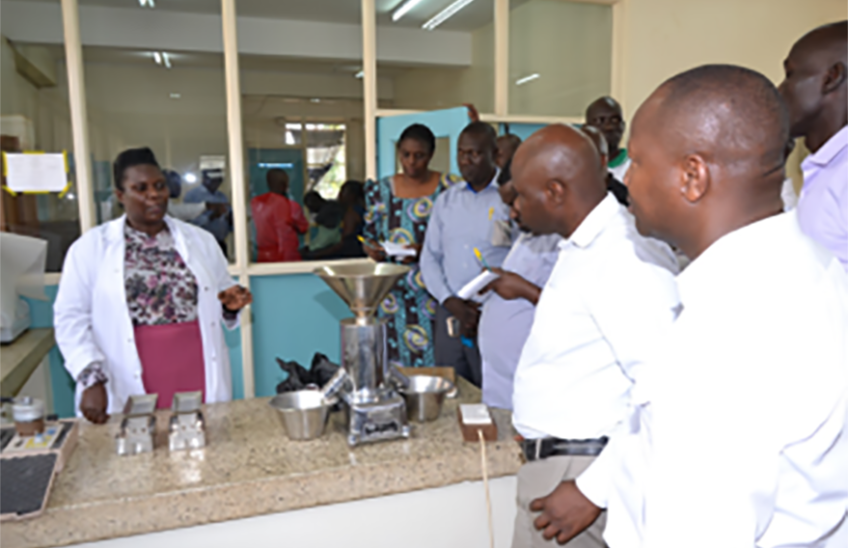Despite harmonized policies, cross-border seed trade is still lagging behind. There is a significant discrepancy between what is stated in harmonized policies and the actual seed certification and border procedures and practices in specific countries. This contributes to mistrust and the introduction of additional requirements, such as seed testing, by recipient countries, to confirm that international standards are being met, resulting in additional costs.
As a result, seed production and trade in the Common Market for East and Southern Africa (COMESA) region is low, impeding access to appropriate, affordable, and high quality seeds by smallholder farmers which is key for increased agricultural productivity and food security in the region. To address this barrier to seed trade, Africa Lead is implementing a pilot seed activity that focuses on improving regional seed trade by strengthening seed certification systems, border operations, and the engagement of national leadership on policy processes.
As part of the pilot seed activity, Africa Lead facilitated a joint learning visit for 57 regional seed sector leaders from six countries: Ethiopia, Kenya, Tanzania, Uganda, South Sudan, and Zambia. The visit addressed specific issues between the six participating countries and stakeholders by facilitating learning, opportunity identification, action, commitment, and collaboration. Participants of the joint learning visit in Uganda attended a field demonstration on seed inspection and digital data capturing processes, and visited the national seed testing laboratory in Kawanda, a Farm Inputs Care Centre Ltd (FICA Seeds) seed processing facility, and One Stop Border Point in Malaba, a town on the Kenya-Uganda border.
On the last day of the visit, countries were paired up, based on interests, to discuss specific trade barriers and opportunities between them and agree on follow up actions to improve cross border trade. Representatives from Uganda and South Sudan discussed how to address the concern of low quality (fake) seed exported to South Sudan, while representatives from Kenya and South Sudan discussed the efforts Kenya has put in place to control the Maize Lethal Necrosis (MLN) virus. Representatives from Zambia and Uganda discussed the issues surrounding GMO certificate requirement for seed from Zambia. Kenya representatives discussed opportunities for seed trade with Ethiopia, while Tanzania and Zambia representatives discussed how to improve trade between them.
Participants underscored the need for regular country to country conversations and process audits to address day to day issues, share lessons, and build trust in their certification systems, alongside bilateral negotiations and actions as a practical way of facilitating domestication and cross-border trade.
To improve border operations and enhance coordination, quality assurance, and confidence in each other’s certification systems, participants agreed to form a team from participating countries (known as the SWAT team) to focus on:
- Creating an independent regional team to conduct bi-annual (regular) audits of the country seed certification processes.
- Establishing a mechanism/ forum for continuous dialogue between national agencies to address existing gaps and emerging issues, and share lessons to build trust in each other’s system.
- Developing country-specific Standard Operating Procedures (SOPS), communication tools and a platform to support domestication and improve field and border practices; simplify and make accessible all procedures and requirements for seed import and export to all traders.
- Addressing capacity issues relating to human resource and infrastructure at country level – numbers and skills set of personnel and facilities.
- Establishing a regional system that can determine demand and surplus in different countries to facilitate forward planning and seed movement a cross countries.
- Improving coordination and harmonization of the various digitization platforms (e.g. Seed Assure and Pedigree) to avoid duplication and confusion.
The joint learning visit was a follow up to the national consultations which developed specific national actions committed to by leaders to address bottlenecks in seed trade. Through the pilot seed activity Africa Lead is building an ever stronger working relationships between major development partners, including AGRA, AATF, TASAI, AFSTA, STAK, and One Acre Fund, which is improving information sharing, activity coordination, leveraging, and joint planning and action. More efforts are required to create incentives and synergy and to build a similar coalition at country level.
